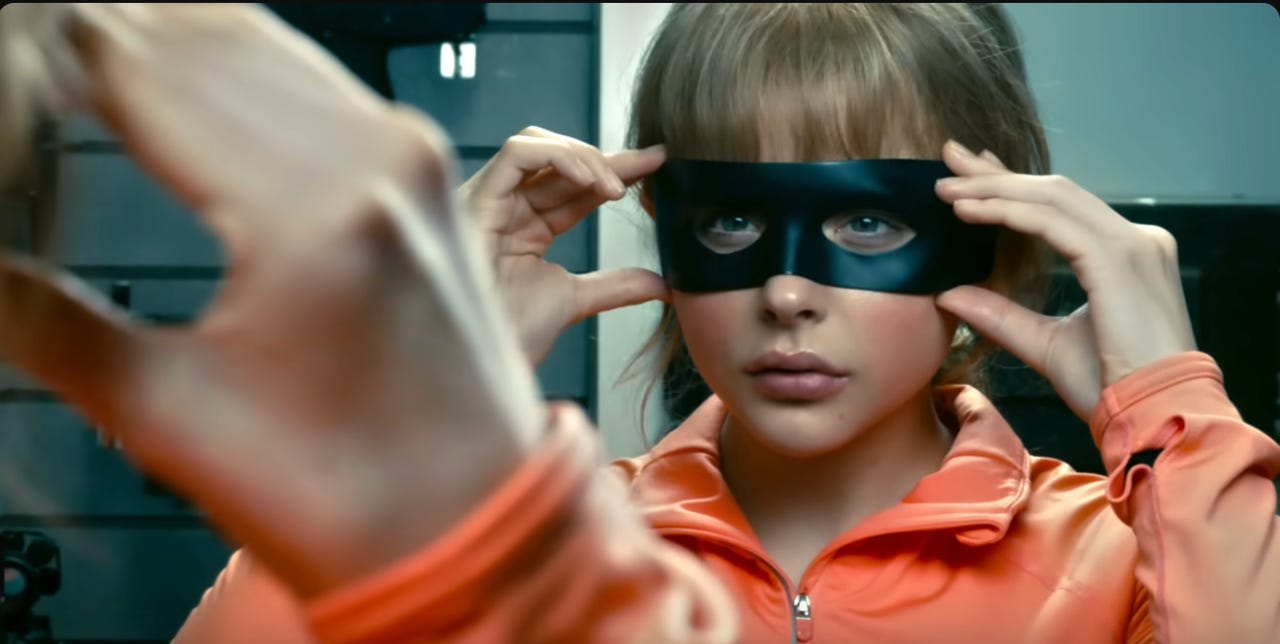Apple wants you to think wearing goggles is wonderful and I'm marveling

Harking back.
Oh, what's $3,499 these days?
Well, it's not far off the average monthly wage in the US, so statisticians tell me.
But let's not quibble about the price right now. For we're in the realm of the vast, important, deeply world-changing launch of the Apple Vision Pro.
Also: The best VR headsets right now (and they're not just from Meta)
Don't call it AR and don't call it VR. Apple would prefer you to call it 'spatial computing,' which really does sound like the sort of computing you'll have to do in space, once you've left fair Earth behind.
Please think back, though, to the days of Google Glass.
Here was technologically inspired eyewear launched by people who were far more nerdy than they were worldly. The results were painfully inevitable. People were a touch repulsed. They felt spied on and the glasses themselves were on the frightful side of ugly.
Apple, though, doesn't make those kinds of mistakes, does it? Not too often, at least.
I couldn't help but anticipate, then, how Apple would begin to present its Vision Pro to the world. Would it, indeed, offer spatial inspiration? Would it tickle people into believing there was a vast new world out there, one with exalted values and virtues?
Also: This ultraportable VR headset gave me a taste of Vision Pro at a fraction of the cost
Not quite. Instead, Apple's pulsatingly clever first ad for the Vision Pro harks backward, rather than forward. It's all so psychologically disarming.
Here, we're reminded of so many movies and cartoons we've loved over the years. All of them were uplifting, inspiring, and riven with hope. You know, oeuvres like Back To The Future, Up, Ant-Man and Iron Man. And what would any movie compilation be without a little Star Wars too?
Here we have a veritable collection of greats, all adorned with some sort of glasses/goggles/weird techy things over their faces.
Why, though, would Apple slip in these particular movie clips? Well, because you never really had any problem with people wearing glasses/goggles/weird techy things above their noses -- or even over their whole faces -- did you?
These characters were heroes of your childhood, teenhood or -- bless you -- early adulthood.
Also: The best iPhone models you can buy right now (including the iPhone 15)
Their facial adornments were essential ingredients of their fascinating, endearing selves. It was all so blissfully normal, in its way.
So why even consider being freaked out about it now?
It's all so perfectly (emotionally) intelligent. While companies like Meta struggle to have any sort of brand image, Apple clings to the belief that humans' greatest triggers are purely feelings first.
In this case, all you're doing by buying the Vision Pro is communing with your heroes. To such a degree that you might feel a touch heroic yourself.
Also: Apple Vision Pro in stores February 2, pre-orders start January 19
Apple isn't reinventing the wheel or even the ad.
Might you remember the way the company first introduced the iPhone? Was it by trumpeting its features -- not that there were too many at the time -- or its particular handiness?
Not at all. Instead, scenes from famous movies in which people pick up the phone to say hello. That was it. Just hello.
Just a warm invitation to a world that may be new, but somehow has a deeply familiar basis, featuring the likes of Lucille Ball, Humphrey Bogart, Harrison Ford, and the Big Lebowski.
This doesn't mean the Vision Pro will be as all-encompassingly successful as the iPhone.
Also: The day reality became unbearable: A peek beyond Apple's AR/VR headset
It doesn't even mean that the world's coffee shops and restaurants will be full of masked people nodding their heads and tossing their arms out in wonder, or even in mid-email. (Though who would be surprised?)
It does, though, mean that Apple hasn't forgotten a cardinal lesson of tech marketing: First, make people feel good.
Then wait and see how long it takes their heroic selves to get hold of $3,499.
